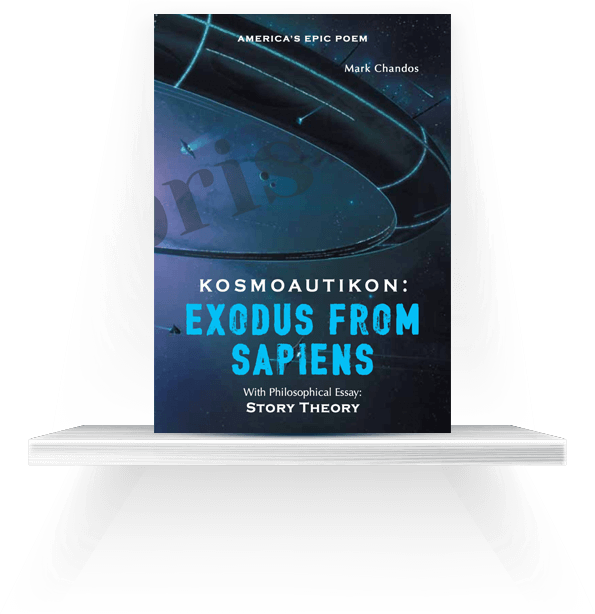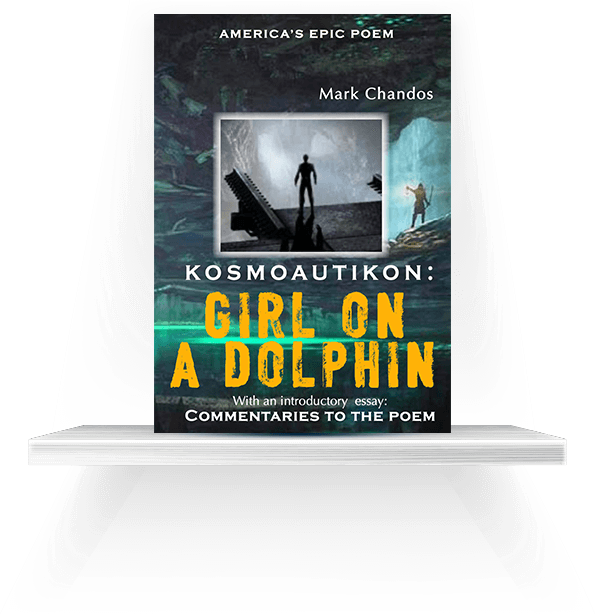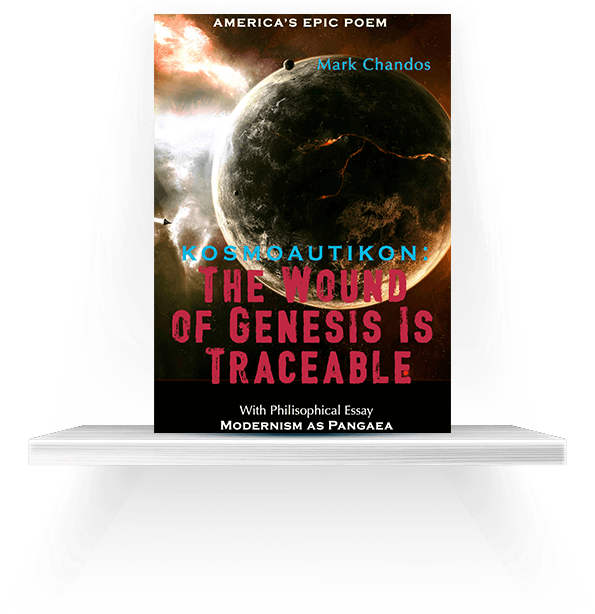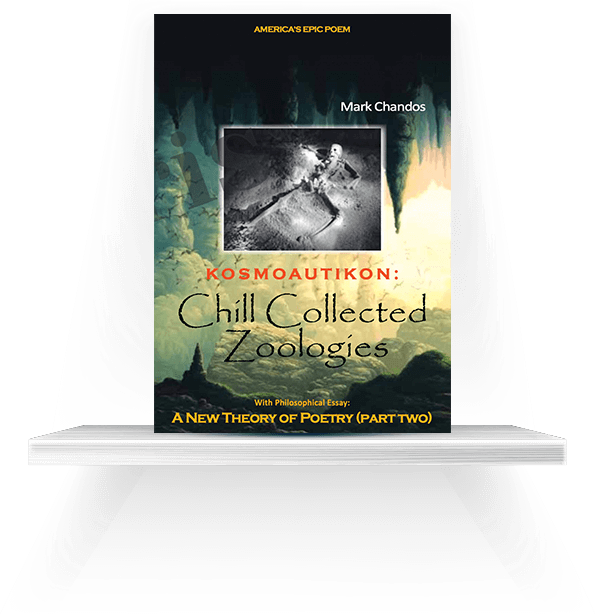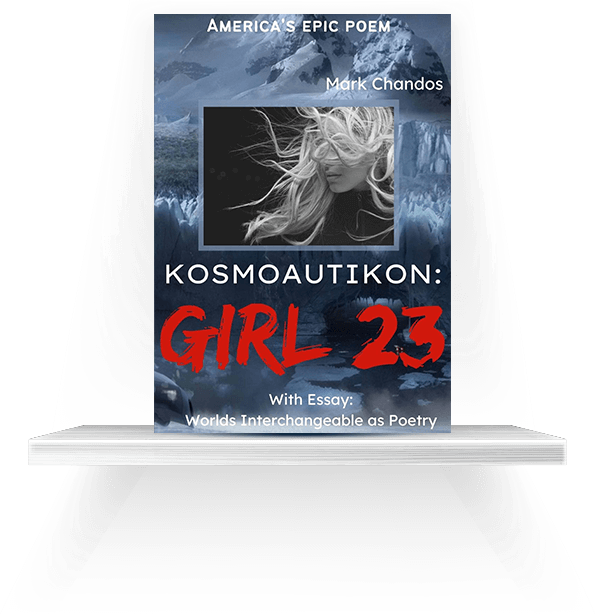The Snakebite of The Poet
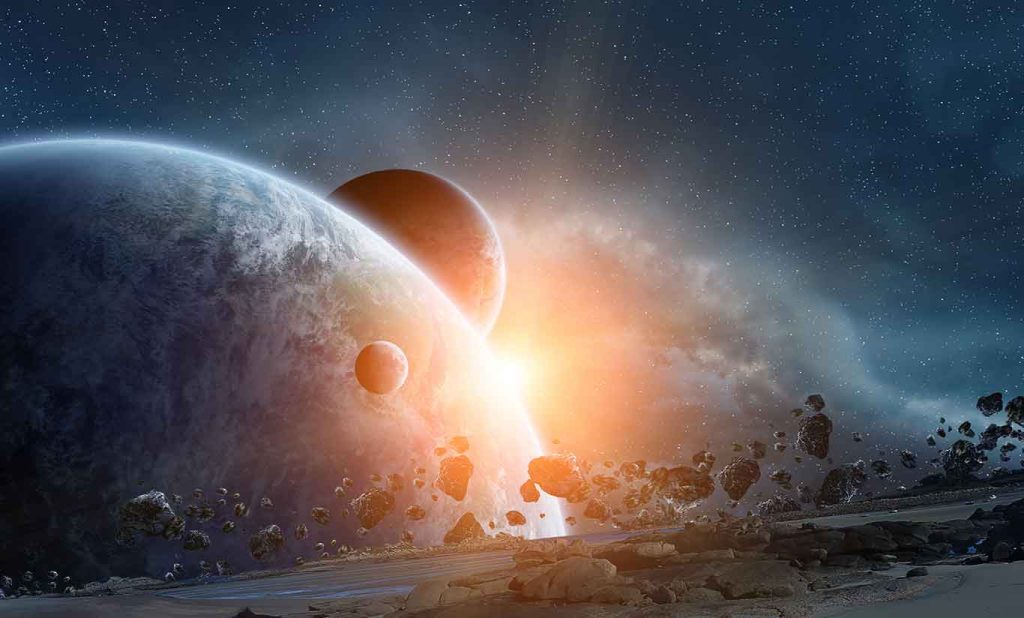
The Snakebite of The Poet
What is The Snakebite of The Poet?
Story Theory tests human consciousness. It tests consciousness with memorable speech. It performs the test by observing how consciousness works. Consciousness always seeks more. More depth. More discovery. More love. More pleasure. More life. More free expression. More victory over difficulties.
What is this more? Human communication is the only tool we have to learn about consciousness — and why it wants more. There is only one human feedback: communication with symbols. We detect the presence of the human Mind when we first read the records of human burial of the dead with reverence (using symbology of an afterlife). This is proof that consciousness demands more of something — more of life.
There is something strange about consciousness. Consciousness, as observed in human speech, has a very particular pattern — found nowhere else in the universe. Expression must reach a level of victory over events. That is, human expression must be memorable — or it fails its demonstration. This is the test of any school of poetry.
Modern poetry, in so far as it strives for total want of all distinction — fails this test of wanting “more”. It wants less and does not care who know it. So we have to explain that.
Consciousness reveals an urge to enchantment in all varieties of sentient life — that is to say, more life, more beauty, more clarity, more maturity. By “enchantment” we observe that consciousness insists on more — on a further innovation, a further refinement of life — a movement towards something — not a movement towards nothing. Charisma, joy, happiness, like enchantment is more of something — not less of something. (If the citizens cannot agree on this basic principle, that the human mind seeks more, then the discussion is over. If extinction and nothingness is the goal, there is nothing to discuss since, with extinction, there is no new discovery to be made of life. Human civilization overall has rejected determinant “extinction” as project for the future.)
“More” is the most undefinable goal in human creation — yet recognized when desired. Poetry ruthlessly seeks “more”. More depth. More charisma. Ever-rarer quick-change combinations of words. More surprise, more discovery. More memorable speech. More universality, more memorable monuments of communication, and a broader idiom of human thought.
All civilizations have one urge in common — they want more of something. “More” always has consequences — usually a competition of values, a clash of civilizations, a race to supremacy. The modern citizen does not know what modernism is — he only knows he wants more of something. The modern, as any past age of man, is merely enchanted with his being. He wants more of his place and time, yet cannot see beyond the flashlight of his own immediate gratifications.
Every linguistic code (as math, science, poetry, literature, engineering, music, industrialization, etc.) evidences a movement towards enchanted formations of speech — more of something — not less of something. No linguistic usage moves towards incoherence or atomization (despite postmodern criticism which is essentially nihilism). All speech seeks enchanted unity — with intent. The human linguistic intent of enchantment always takes the form of beauty. So poetry is a discussion of the good and the beautiful.
A writer, a poet, a musician, a sculptor, a painter, wants more. First, he wishes to master something — his craft. Then he wants more to come out of the idiom he has mastered. An artist does not make a picture. He makes more. A sculptor does not make a statute. He makes more. He makes a deeper selection of more — a statement of intent. His intent is clarity of thought, as a poet’s intent in enchantment of thought. Human communication embeds a bias of life — for more definitive life. The artist does not seek to merely make an exact reproduction of a photo — he seeks more — to make a picture of selected aesthetic value — an eccentric bias — a universal monument — a deeper thrust into the unknown.
An architect does not wish to only design a useful structure. He wishes to make a structure for all time. A songwriter does not want to make only a song. He or she wishes to make a song to mark its time — for all of time. I do not wish to make a poem. I wish to make a poem for all time — a poem by which humans will define their sentient condition — a newly discovered resource of conscious thought.
This poem will contain lines future men must know to define what is human. What does such an audacious courage verify? It verifies the human urge to enchantment — to life — not to extinction.
Poems tell us something about the condition of life — something about its state and its origin. The artist never intentionally wishes to make an ugly picture. He can only wish to make a statement filled with the mastery of a form of idiomatic beauty. Therefore, all strong art masters its feedback. What is our response to our life? Art is a machine of eternity. That is, all great authors want to be elsewhere — and cut that path in a thick forest no one has dared to go. Since art is the feedback of consciousness, therefore consciousness is a machine of eternity. This is vital information about the human condition. There is consequently no path to extinction in consciousness. There is only the option of victory in expression. This is essentially proof that the nihilism of postmodern art is an expression of exhaustion, or worse, dilettantism. At worst it is without distinction and studies to ignore 2500 years of Western achievement in the arts.
This urge to enchantment embedded in great civilizations is evidence that consciousness is dynamic and in motion towards something. If consciousness is still in translative movement — that is, the conscious mind moves towards something formed, but still unknown — then consciousness is still unfinished. It is unfinished since it awaits our feedback. This is a fact of Story Theory. All stories prove there are no end of stories.
If “Being” is incomplete. It is an opportunity. We seek dominion over a still unfinished consciousness. The epic poet is in a race to supremacy over all other human expression. There is no other race greater within the genre.
Story theory discovers three unassailable facts of Being — that 1) science is a form of poetry (i.e. science is only an interpretation of phenomenon using symbols), that 2) consciousness contains a bias of direction (enchantment), and that 3) consciousness is still unfinished — we move on to new insights. The result is the world is an expression of poetry and thus can only be correctly described by poetry.
We do not define a valley spread out from our window. We cannot enumerate each blade of grass or the cells of the individual blades. We ignore the trillions of definitions that comprise any case remotely approaching a definition. Instead, we say there is a green valley with red poppies. That is a poetic description. That is poetry. And this image illustrates how poetry is the only means we may represent our world, our relatives, our beloved, our enemy, or our fate. The world is thus a school of poetry.
To illustrate how poetry maps and enchants the mind of Homo Sapiens we have to show the modern the greatest poems known to him from his materialistic education: the epic images and symbols of science. One example of the memorable speech (poetry) of science will be effective. The modern world slept the sleep of the indolent until men heard the phrase, “survival of the fittest.” A single word-group, a single image, a single dataset, changed an entire civilization. It little mattered to Hitler, Stalin, Mao, or any modern state that there were no proofs of Darwinism, no fossil links between species (admitted by Darwin himself.). No it was sufficient that an entire age was snakebit by epic poetry, memorable speech, that seemed excellent and fit to the age of murder. It can be argued that 200 millions of innocents were murdered in the wars and revolutions of the 20th century — all bolstered by a single poetic phrase that stuck in the brains of men. In Story Theory, thus, poetry (memorable speech) is a race to supremacy. Epic speech has consequences once on the lips of the yet unborn. That is the race all true poetry seeks to win.
All possible worlds are still compressed in prescient linguistic feedback. Only the master of an art explores the numerologies of worlds held in prescience. Only the modern is not a genius. Only the modern cannot be a master — since he cannot make himself up from zero — he cannot hear his own silences. Modernism supplies too much irrelevant feedback — too much white noise.
My work insists that Western philosophy suffers from the same weakness as modern poetry. Neither modern poetry nor modern philosophy proceeds from story, only from a kind of intellectualism (a dithering, aimless, teasing of other people’s previous attempts at story).
Therefore, so much of modern (prose) poetry seems pointless, unreadable, and irrelevant. The proof is there is no market for “prose poetry”. Modern prose poetry does not seek memorable speech — it replicates the cadence and economy of newspaper-speak, having no distinction other than the pride of no distinction. The modern poet, so intimidated by the superior poetry and images of science, repeats clichés to connect his context with minds made lazy and indolent with technology. He avoids the hard thing — to face down the brilliant poetry of science. How to undercut the genius of Big Bangs, Black Holes, quasars, entanglement, Boson, quarks, Quantum mechanics and terrifying emptiness of the atom? Such high poetry — and all unproved or conditional linguistics, even now only in transition to still unknow mythologies — all to be discarded or replaced in a few years?
Modern philosophy, likewise, is unreadable, uninfluential, and irrelevant. No politician interviews an academic philosopher before he decides war or peace. The academic only addresses other academics. The academic philosopher does not bother to address the vernacular speaker. The PhD and the scientist do not address a vernacular audience. Their terrifying, humiliating message to the citizen is, “Trust us, we will do your thinking for you.” How could this be true? How do we accept science without understanding the science involved? No vernacular man can read an advanced scientific paper. Our submission is cowardly and cringeworthy. Yet no one bothers to protest this civilization.
Scientific insights, because they cannot be shared with vernacular clarity, are consequently merely self-referent — hermetically sealed. The urge to enchantment of the academic and scientific specialist is thus degraded — blocked. Their school of poetry, using symbols to represent a possible world, is totalitarian, ranging from cringe-worthy to horrifying, from toothpaste to atomic bombs.
Because of the linguistic schism in Western societies — that is, between a vernacular class and a specialized, scientific class — vernacular poetry and the “poetry” of science are divided into separate and hostile narratives of what passes for empirical information of “world.” There is no need for this schism. Story Theory makes a correction. All speech (including science) is an interpretation using symbols. My reader already knows what to call that: Poetry.
How to make a correction to an immoral, nihilistic civilization out of control? To destroy it. The only remedy for a man getting a beating and being unable to stop the beating — is to break the stick. But how?
The only way to face down the tyranny and dangers of self-destructive science (i,e., nuclear fusion, global contamination, and 6000 animal species extinct in the Age of Science) is to expose science as a competitive school of poetry. Once this is clearly shown, a great poet can deconstruct the images of a terrifying material world that ends in extinction and non-entity. If science is a school of poetry, interpreting reality with its own choice of brilliant linguistic symbols, then a counter school of poetry can make the death and destruction of science merely a wounded morality — to be discarded.
So you know it, that is the project of Kosmoautikon.
Modern poetry and philosophy share the same malady: neither tells a story. Modernism does tell a story — an epic story of ruthless destructive technology, supremacy over nature, of space travel, of new classes of fake medicines, seeds, processed foods, etc.
Modern prose poets of the last three generations never wrote a single poem daring to mention the epic achievement of science. It is an amazing lacuna. Science is the most prevailing characteristic of the modern world! Yet modern poets never dare to mention science. If there should ever be another epic poet, he should be a poet of science fiction epic poetry.
Atomic power, electronics, pharmaceuticals, technology, and innovation arise only from a linguistic narrative of men. There is a story of value to be told of technology and its impending destruction. Though faulted and lying, modernism is a glittering subject as poems (as modern advertisements and pop music are likewise glittering). Yet 20th century science and modern poetry never meet. Modern poetry is cowered by the more brilliant images of science. And so, an entire civilization (scientific materialism) is hurdling snakebit to its final destruction. It is ironic that each are both schools of poetry — and each denies the existence of the other.
Concerning the achievement of modern science, modern poetry is silent. Why are poets so afraid of scientism? Science is the greatest poem of our time — it’s just going to destroy you and the globe in a fireball.
In Story Theory we take the fear out of science by dividing science again and again until we designate its core competence — poetry. Science is a school of poetry — using symbols to represent a possible (if self-referent) world. Kosmoautikon faces the school of science head-on, without shame, without cowering, presenting its own ushered charms to dispel the trance of a magical dragon.
Modern prose lyric poetry and academic philosophy, in comparison to science, contain no innovative narrative — only clichés of modernism. No one buys modern prose poetry or modern philosophy in bookshops. People do buy pharmaceuticals and electronics of science. In fact, modernist products are a supreme idiom — making humans into consumers assigned a number. Poetry and philosophy, in contrast, are dumb and silent. Kosmoautikon faces this challenge head on by presenting an alternate and competitive school of images.
How can there be a modern art that ignores the terms and constructs of the modern world — the imaginative idiom of science? How can there be a modern theory of poetry if contemporary poets are permanently alienated from the modern linguistic achievement of science? There is no modern clarity of mind. There is no religion. There is no philosophy. There is no memorable, poetic speech. It is time to terminate Homo sapiens. He has failed. His mind must be reset. So you know it, this is the story of Kosmoautikon. A correction is within sight. The world has ended many times. And Kosmoautikon tells the story of the future — how the world is reset.
At the very height of its arrogance and supremacy we find that modernism has decisively over-reached. We accuse modernism of its banality — it maims and deforms the human. Modernism lies — that is, it makes false datasets of artificial information — and sells it as happiness. Modern (processed) food is not food. Modern (addictive) psyco-pharmaceuticals are not medications. Modern poetry is not poetry — it is prosaic political whispering. Modern freedoms are not freedoms — they are twenty-four-hour electronic surveillance. Modern print is propaganda of more modernism. Modernism is not honest to its bones. And now it is moving to totalitarianism and dogmatic ideology. That is a danger to the plurality of thought — a danger to everyone’s freedom — and especially dangerous to free artistic expression. Poetry must be free to innovate, surprise and shock. No government, no ideology will tolerate innovation, surprise, and shock.
Perhaps this is why no poet and no poetry has innovated surprised or shocked since the takeover of leftist ideology in academia in the 1970s.
Any strong poem, any strong philosophy must tell a story of men. The human mind is activated only by story. Modernism, as is science, is vital because it tells an epic story. If you join modernism you will get more — more of everything available in the modern world. That is the narrative of modernism — it tells s thrilling story — and it hides its tiger heart wrapped in its own darkness.
This is the case for the epic trope. Only a well-constructed story ensures clarity of mind. That is Story Theory.
In Story Theory, each civilization always discovers its own empirical justifications — its own destructive contradiction.
How does modern scientism compare with Fascism and Communism? Science has the exact same linguistic DNA as any totalitarian schools of poetry. The pathology of each self-referent school is similar. We can test this.
If you could fanatically trust in the superiority of secular materialism, believing that the material structure of “reality” is an absolute, then it is a small step to move to eradicate all misfits — all other — within this “enchanted” linguistic group. If you fanatically believe in only material and physical causation, then it is only logical, it is only right, to eradicate all datasets of spiritual or non-materialist speech within modernism.
How do we define a man living under linguistic scientism? He is a modern believing in secular materialism as the single, most excellent representation of human reality. He is a man that wants to see the bones dug up if any assertion of the past is made. He wants to see the statistical figures of the demographic market trends. Why is modernism supreme? Because each member of the class of modernist scientism is offered more — more modern state support, more (academic) privilege, more state research wealth, more authority of publishing and more opportunity of material wealth and prestige.
Of course, moderns are only able to speak to moderns with coherence. The maxims and speech of modernist scientific society are self-referent. Because scientism is a linguistic code it embeds its own empirical proofs. Yet since the idiom of modernism is imposed — since it is not free expression — a strong propaganda apparatus to control speech is essential. Any misfits of the modernist system must be re-educated, incarcerated, or medicated.
Modernism is a school of linguistics. Modernism cannot survive without massive and around the clock commercial advertising. The state in all modernist nations owns, runs, and controls the education system. If you doubt modernism, then you must doubt its pedagogical datasets — and you have to doubt education itself. But whose education is it? It is not the education that the Plains Indians, Australian Aboriginals, or African tribes would recognize. It is the education of a secular and materialist school of linguistics. And they jealously guard this linguistic dataset. There are social penalties to disrespect secular scientific materialism.
It’s perfectly logical to ingest chemicals you know to be toxic — so long as you are a true believer. (With a similar self-contradictory logic, followers of a radically pacifist Christianity were induced by propaganda to become violent Crusaders in the Levant. Every civilization is linguistically confused and contradictory.)
Scientism is not some kind of human aberration — rather, like Nazism and Communism — it is a logical progression from linguistic first principles. The ruthless exploitation of earth’s environment (by the scientific, industrial state), the eradication of all non-modernist societies (as in China, Japan, and India, and the Plains Indians) or the extermination of yet unnumbered animal species, each, is only the natural outcome of scientific speech believed with unquestioned self-reference.
The result? Under scientism, the only solution to any human problem is more applications of science. Modernism in, modernism out.
In short, scientism manufactures as much propaganda as Medieval Christianity, as much as fascism and communism. My point? Modernism is as self-referent and brutal as any past totalitarian ideology. Scientific materialism is a school of poetry — and thus can only be unmasked by another school of poetry.
Kosmoautikon clarifies the current human crisis of a failed modernism with the sting of a rogue poet.

